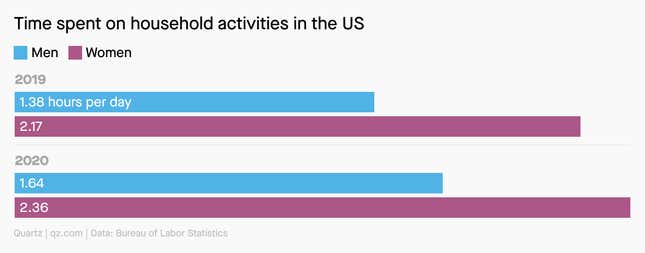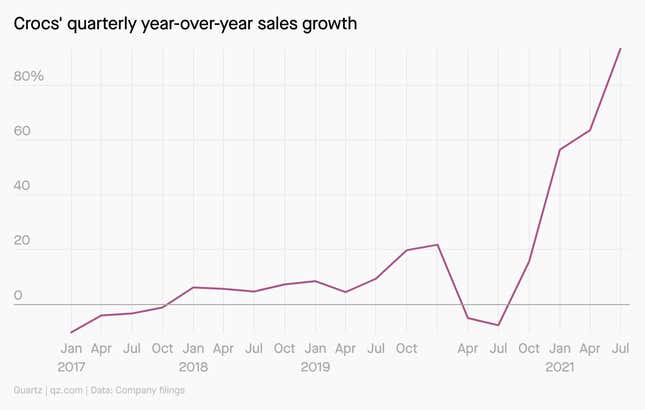Hi Quartz readers,
“The pandemic is a test. And the world is failing.”
That’s the message WHO director-general Tedros Adhanom delivered on opening day of the Tokyo Olympics. In the time it took him to deliver his speech, Adhanom said, more than 100 people would die of Covid-19. The only solution is to “vaccinate 70% of the population of every country by the middle of next year.”
Adhanom sounded the alarm in Tokyo because his message is urgent: The Delta variant is sending Covid-19 cases up around the world, and the Olympics are currently the planet’s most high-profile stage. But the WHO hardly needed to fly someone to Japan to remind Olympics-watchers that a pandemic is afoot: The Games are a case study in humanity’s chaotic, inconsistent approach to mitigating Covid-19 risk.
This year’s Olympics are taking place amid a state of emergency in Tokyo, and despite the fact that most Japanese people don’t want them. Olympics spectators were briefly invited to the Games, while Olympians’ nursing newborns were briefly prohibited. Sponsors have started pulling back, but only after the optics became unworkable. And while the International Olympic Committee did offer to vaccinate players and officials, it’s a perk made necessary by the inequitable distribution of vaccines. Already, there are more than 100 Covid-19 cases in the Olympic Village.
“Clusterfuck” may seem like a glib way to describe this year’s Games, considering the stakes. But it’s an apt description—for the Olympics, and for so much of the past 18 months. Clusterfucks are “those debacles and disasters caused by a deadly brew of illusion, impatience, and incompetence,” Stanford business professor Bob Sutton told Quartz. “[That brew] afflicts too many decision-makers.” —Annabelle Timsit
Inbox interlude
Want more Olympics intel? We’ve got a pop-up guide to the Games running this week and next. Get the best highlights, fun facts, and interesting histories sent directly to your inbox.
Six talking points
🛍️ Hong Kong can’t revive retail without tourists. Six million people registered for $640 spending vouchers, but it’s not enough to offset a decline in visitors.
📈 Why does the Delta variant spread so quickly? Those infected have more than 1,260 times the viral load of people who contracted the original strain found in China.
💉 India isn’t sure how many vaccines it’s making. In a single day, the government shared three different estimates for daily domestic production.
✈️ More than 450 airlines can now use the same vaccine passport. Instead of presenting paper-based certifications, travelers need only scan a QR code at the gate.
🤝 Covid-19 is changing how African countries work together. Many governments have started speeding up digitization and regional collaboration.
😞 Indian households still aren’t Covid-prepared. Half of respondents to a recent survey didn’t have basic medicines, and 20% didn’t have a thermometer.
You asked
Where is the Delta variant spreading?
Now in more than 100 countries, the Delta variant is fast becoming the most dominant strain of Covid-19 in the world. The variant is highly transmissible, and known to render vaccines less effective, especially among those with one shot out of two.
But vaccines do remain over 90% effective in preventing hospitalizations from the variant, and the hardest-hit countries are those with less than 15% of their populations vaccinated. Get your scrolling thumb ready; here’s the impact Delta is having on new cases around the world:

Reinventing the chore wheel
According to new data from the annual American Time Use Survey, men spent an extra 16 minutes per day on housework in 2020. Hooray!
Just one hiccup: Women were already dedicating more time to housework and household management before the pandemic kicked off. In total, women spent an average of 2.4 hours per day on these inescapable tasks in 2020. Men averaged 1.6 hours.

Undefeeted
Five or so years ago, Crocs were considered footwear for chefs, healthcare workers, and kids—groups with more pressing concerns than how they look. But today it’s routine to see teens casually wearing Crocs, and adults throwing them on to run errands. In the three months ended June 30, the company generated a record-breaking $641 million in sales, more than the $596 million Nike-owned Converse brought in during its most recent quarter. Like it or not, Crocs are here to stay.

Elsewhere on Quartz
- Learning utensils: These businesses are saving thousands by replacing single-use plastic.
- Battlefield Earth: The climate tech SPAC boom is just beginning.
- Acquired taste: Netflix is not impressed by any of the media companies it can buy.
- Mythic quest: Gamers are going to great lengths to find graphics cards in a chip shortage.
- Coolcoolcool: Giant coal mines are part of China’s plan to reduce its dependence on coal.
Our best wishes for a healthy day. Get in touch with us at [email protected], and live your best Quartz life by downloading our iOS app and becoming a member. Today’s newsletter was brought to you by Annabelle Timsit, Amanda Shendruk, Manavi Kapur, Lila MacLellan, Marc Bain, and Kira Bindrim.
